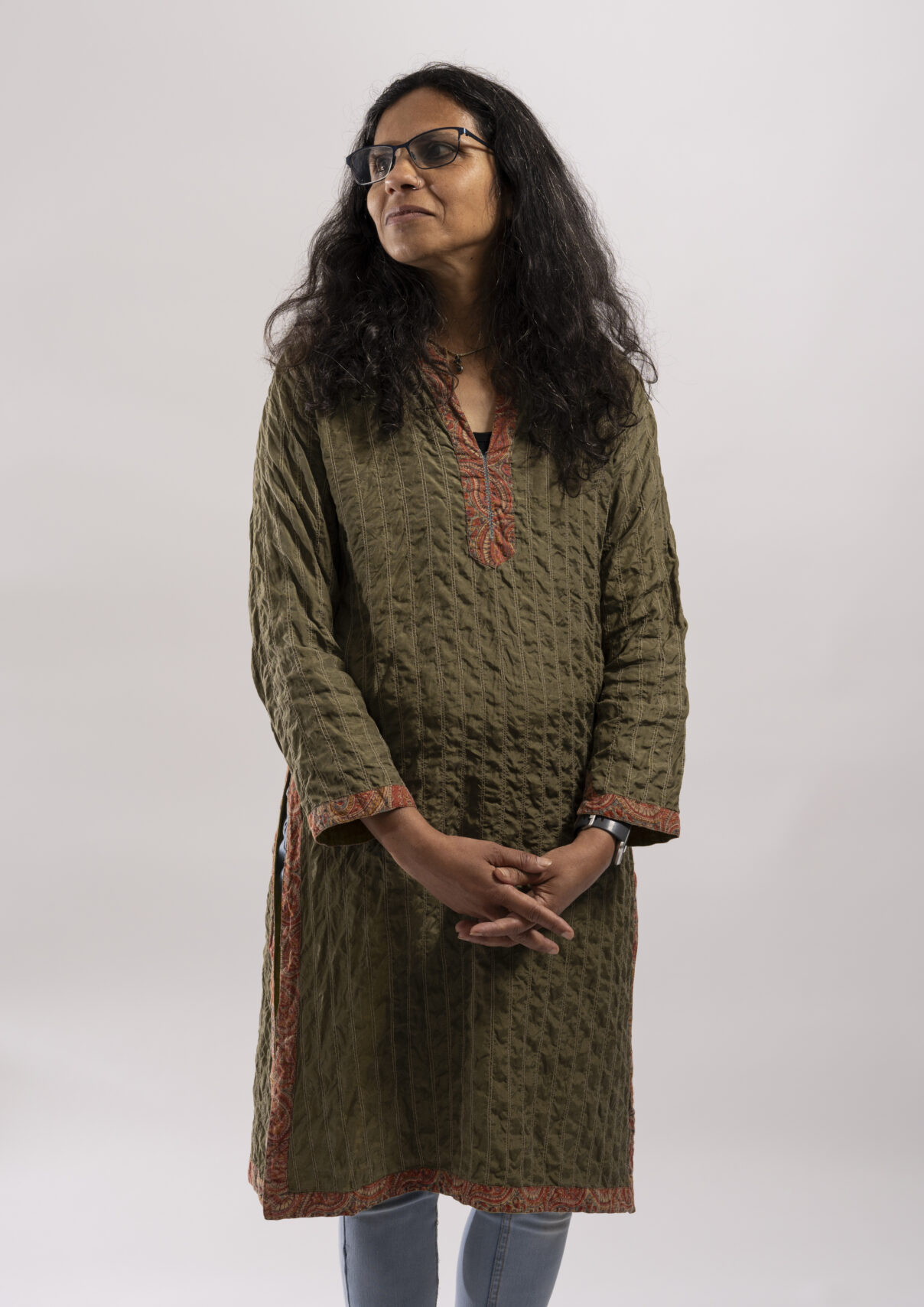20 Years of MSW – Geetanjali Gangoli
As we celebrate 20 years of the Master of Social Work (MSW), let’s meet Geetanjali Gangoli, Professor in Sociology.

Please tell us about your role within Sociology/MSW.
I am Professor in Sociology, and member of Centre for Research in Violence and Abuse. I have convened the Research in Social Work module, which trains second year MSW students to apply their practice to research, and prepares them for their dissertations. I have also contributed teaching on intersectionality, domestic abuse and other forms of violence and abuse against women and girls.
What is your research specialism / areas of interest?
My research expertise is on understanding the experiences of, and perpetration of violence and abuse particularly in racially minoritised communities in the UK. Particular forms of abuse and violence include domestic and sexual abuse, dowry related abuse, forced marriage, honour based abuse and trafficking of women and girls. As such, I am interested in family abuse as distinct from intimate partner abuse. I have also worked on feminist responses to violence and abuse in India, most recently on online activism. Intersectionality within gendered forms of violence and abuse is a key theoretical concern that I engage with, and I am interested in understanding intersections between structural, familial and individual forms of violence and abuse.
How did you become involved with MSW?
I joined the sociology department and the MSW team in 2020, when I started teaching the Research in Social Work module.
Why are you so passionate about Social Work and the work your department does?
Social work challenges the idea that inequality and suffering is inevitable. All my colleagues are committed to social change, and making this world more egalitarian, and pass on this vision and passion to students. I feel privileged to be part of this team!
How does your work impact communities / the world around you?
My work is about change, and positive impact. Some examples are: contributions to theoretical understandings around justice and gender based abuse; nuancing debates around different forms of oppression that racially minoritised women face due to intersecting identities of sexuality, disability, gender orientation, social class, and in the current political climate, immigration status. I have developed training on forced marriage prevention, and on sexual abuse in refugee and asylum seeking communities, both of which are used widely to train practitioners and policy makers. I also work closely with specialist organisations working with marginalised women and girls, and aim to bridge the gap between specialist and generic services. I am proud to have volunteered with organisations such as the Fawcett Society, and am now a trustee with RSACC. Change is slow, and for immigrant and first generation migrant women, things seem to be going backwards at times, but working with this team gives me hope.
What’s been your proudest moment working on the MSW?
When I see our students graduate!
What would you say to something thinking about working in Social Work?
Do it – you can make such a difference to so many lives. It is an amazing profession, not easy, but you will get such joy while working with committed people.
How has your subject changed in the last 20 years? Or have the key fundamentals stayed the same?
Research into violence and abuse against women and girls has made huge advances – we have a better understanding of some of the forms of violence and abuse than we did 20 years ago. In the UK, there have been some great policy and legal advances in the area of domestic and sexual abuse. There are now legal provisions to protect women and girls against forced marriage and female genital mutilation. But a lot remains to be done still – migrant women and girls need protection from abuse both from their families, but also wider communities, and state policies.
Find out more
- Geetanjali Gangoli is a Professor in the Department of Sociology. Visit her profile
- Find out more about MSc Social Work
- Our Department of Sociology is ranked 1st in the UK for Criminology and 3rd in the UK for Sociology in The Times and Sunday Times Good University Guide 2024. Feeling inspired? Visit our Sociology webpages to learn more about studying with us.
- If you’d like to share your story or insights into your work, visit our Submit a blog or vlog page to learn more.
